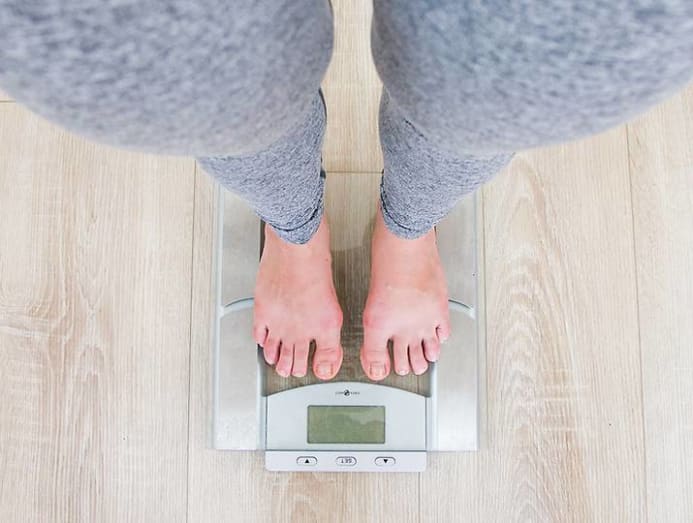Working from home? How to stop gaining weight from all that snacking
Experts say you might gain 0.5kg in a week from mindless munching. The good news is that there are ways to eat healthier at home compared to when you are at the office.

(Photo: Unsplash/The Creative Exchange)
If your company has recently implemented segregation plans because of COVID-19 and you’ve been working from home for a while, you’d know by now that the arrangement has its ups and downs.
For instance, you don’t have to brave the rush-hour commute to get to and from work. Lunch gets delivered right to your doorstep and not just the lift lobby.
But with great convenience comes great weight gain if you’re not careful. For one, snacks are even more within your reach at home, “unless you live in a mansion with the kitchen in the left wing and your bedroom in the right”, quipped Jaclyn Reutens, a clinical and sports dietitian as well as the founder of Aptima Nutrition & Sports Consultants.
She added that since “environmental cues are a big influence of food choices”, you’re likely to end up eating what’s readily at home.

YOU MAY GAIN 0.5KG IN A WEEK
What's in the kitchen is likely your go-to snacks. And here’s where the calorie count begins.
For instance, a 75g bag of chips has about 400 calories, said Reutens. Even seemingly low-caloric options such as plain biscuits can pack 160 calories if you munch on four pieces at a go. Wash them down with a cup of three-in-one coffee and that’s an extra 90 calories. If you choose a sweetened beverage such as a juice or packet drink, you’re adding another 120 calories per serving.
If you keep consuming an extra 500 calories a day for a week, they'll translate into 0.5kg of weight gain.
And if you’ve still got some leftover Chinese New Year goodies lying around, the numbers go up. Ten love letters have 326 calories, five pineapple tarts provide 466 calories, and one slice of bak kwa has 180 calories, said Reutens. “It would not be hard to consume an extra 500 calories a day,” she said.
So what’s the big deal about consuming those additional calories? If you keep consuming an extra 500 calories a day for a week, they'll translate into 0.5kg of weight gain, said Dr Lee Phong Ching, a consultant with the Department of Endocrinology at Singapore General Hospital.

To rein in the excessive calorie intake, Reutens recommended to "consciously eat slightly less than you would if you went to the office". For instance, remove a couple spoonfuls of rice or noodles for lunch. Skip the biscuits at tea break, or switch to soda water instead of your usual afternoon kopi.
Alternatively, move more, she said. Get up and do five-minute stretches or calisthenic exercises for every hour of work.
HOW WORKING FROM HOME AFFECTS YOUR EATING HABITS
If you’re already a frequent snacker in the office, the habit can become even more prevalent when you work from home, said Reutens.
“Home is your safe and comfort zone, and now, food is within even easier reach", which makes you feel less guilty to snack.
READ: Does walking 10,000 steps a day really help in your weight loss efforts?
The need to munch frequently, or what is known as mindless eating, stems from your need for taste and texture.
“Our mouth constantly seeks out textures and tastes that we know makes us feel good, especially when we need a break from our usual boring routine,” said Reutens.
"If you begin a habit of rummaging through your pantry at mid-morning, mid-afternoon or both, your stomach starts to expect food at a certain time, even though you are not hungry. That’s when all the unnecessary calories build up.”

Not that snacking is a bad habit in itself. It is what you eat that makes it detrimental to your health. One way to minimise unhealthy snacking is to reduce the availability of high-calorie or junk food at home, said Dr Lee. Instead of chocolate and potato chips, get fruits, vegetables or nuts.
On the other hand, there are those whose diet may actually improve from working at home. “Many patients have unhealthy meals that are high in calories and fat whilst they are at work, due to the reduced availability of healthy food choices at the workplace,” said Dr Lee.
READ: Why diets don't work: The reason that weight you lost comes back with a vengeance
“It can also be very challenging to adhere to a strict diet especially when you have working lunches with clients and colleagues. In these instances, working from home may make it easier for a person to stick to a healthier diet,” he said.

YOU GOT TO MOVE IT, MOVE IT
It is definitely an improvement if working from home lets you focus on eating healthier (for instance, you may be more inspired to cook your own lunch). But if you’ve become more sedentary working at home as compared to working in the office, don't count on the digital display on your weighing machine changing much.
Here’s why: According to Harvard Medical School, these are the average amount of calories you’re actually burning from working from home each day:
| If you weigh | Calories burned per hour | Calories burned per nine-hour day |
|---|---|---|
| 58kg | 46 to 68 calories |
Up to 612 calories |
| 70kg | 56 to 84 calories |
Up to 756 calories |
“Compare those numbers to a typical day in the office, where there is more movement, a 58kg person would burn 82 to 105 calories an hour, and a 70kg person would burn 102 to 130 calories hourly,” said Reutens. “The difference is about 40 per cent per hour.”
Moving more can certainly help you burn more calories, said Dr Lee, who suggested scheduling regular walking breaks. “Singaporeans tend to have busy lifestyles, and a frequently cited reason for not exercising is a lack of time. We should take the opportunity to use the time saved from commuting to and fro from work to exercise and be more active,” he said.

The benefits aren’t just about your figure. “Several studies have shown that breaking up uninterrupted sitting with a few minutes of walking every 30 minutes can even have significant benefits in improving blood sugar and cholesterol levels,” he said.
READ: No more excuses not to exercise – especially if you're spending free time on your phone
If you don’t have the time to take a walk, Reutens recommended these ideas for keeping yourself active at home:
- Stop and stretch for five minutes for every hour of work.
- Drink more water (which is good for you anyway), so that you'll walk more for your bathroom breaks.
- Stand instead of sit when working on your laptop.
- Walk out for lunch as you normally would. Take the stairs instead of the lift.
- If you are watching television during your break, do pushups or lunges for the duration of the commercials.






